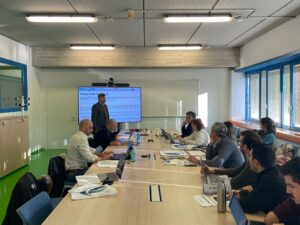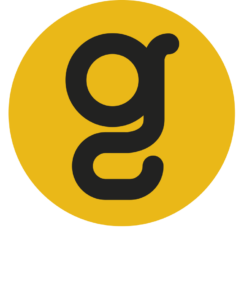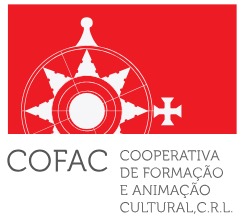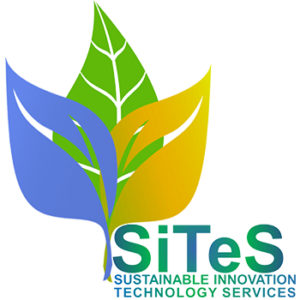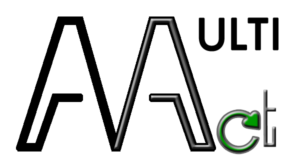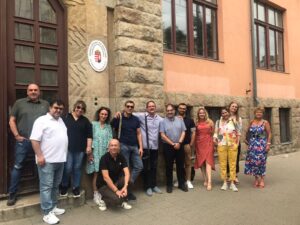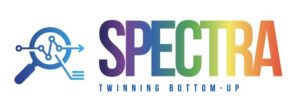C-TOUR
The European Commission, thorough Erasmus + KA220 VET has granted the
C-TOUR project to the consortium led by (CFL soderhamn-sweden). The project focuses on the development and test of a new VET pedagogy in order to equip targeted VET learners (including the active and/or future workforce and aspiring entrepreneurs in small tourism) with future-oriented skills crucial for circular-economy thinking and support them to become actors of change towards circular, green transitions in the small tourism sector. It will showcase real-world small circular tourism practices, and use them as highly inspirational and motivational VET training tools to offer easy understanding on circularity in small tourism. In addition, it will develop a VET Curriculum along with high-quality multimedia tools covering competence areas of circular tourism.
The objective of the project is to contribute to seeking to pioneer an innovative approach to Vocational Education and Training (VET). Through the development of VET Curriculum and Explainer Videos, C-TOUR aims to design, craft, and validate an entry-level VET Curriculum that places a strong emphasis on cultivating circular tourism skills. Furthermore, we wil produce a series of enlightening and motivational explainer videos. In the other hand, through the creation of Inspirational C-TOUR Digital Stories, the aim is to craft motivational digital narratives under the banner of C-TOUR, which will spotlight instances of small circular tourism practices, effectively advocating and exemplifying the concept of circularity in the domain of small-scale tourism.
The C-Tour has a duration of 30 months starting 01/12/2022 and ending by 31/05/2025. Additionally, the project is implemented by seven European Partners (Sweden, Ireland, Spain, Denmark, Netherlands, Greece and Romania).
The C-Tour has a budget which amounts to €250.000 that the European union finances with a 100% rate through the Erasmus + KA220 VET programme.
SITES ROLE IN C-TOUR
SITES offers its proficiency in sustainable innovation, encompassing strategic innovation guidance tailored for small enterprises, adept project management capabilities, and a wealth of experience in navigating EU programs. Our role extends to orchestrating meticulous quality assurance across the project, spearheading comprehensive internal evaluations that encompass processes, outcomes, and impacts at every project stage.
In addition to our overarching internal evaluation leadership, SITES assumes responsibility for driving the project’s quality assurance endeavors. This encompasses meticulous planning and meticulous execution of quality assurance protocols across multiple dimensions, including process efficiency, tangible results, and far-reaching impacts.
To more information about C-TOUR Click link below
Share this with a friend

Other Projects

Overview
FREECOVER is a cutting-edge research initiative funded under the Horizon Europe MSCA Staff Exchanges program (Grant Agreement :101182579). Running from January 1, 2025, to December 31, 2028, the project brings together academic and industrial partners across Europe and beyond to address one of the most pressing challenges of our time: the sustainable recycling of Rare Earth Elements (REEs).
REEs are critical for green technologies such as renewable energy systems and electric mobility. However, their supply faces significant risks due to limited natural resources and high environmental costs associated with traditional extraction methods. FREECOVER aims to develop an eco-friendly, innovative hydrometallurgical process to recover REEs from metallic waste, contributing to a circular economy and a sustainable future.
Objectives
FREECOVER’s mission is to revolutionize the recycling of REEs by achieving the following objectives:
- Sustainability: Develop a green recycling process using natural, eco-friendly materials.
- Circular Economy: Strengthen the REE supply chain by creating closed-loop recycling systems.
- Innovation: Demonstrate the effectiveness of novel materials, such as ionic liquids and natural polymers, in REE recovery.
- Knowledge Exchange: Foster interdisciplinary and cross-sectoral collaboration through international secondments and training activities.
Key Innovations
- Eco-Friendly Processes: Utilize natural acids and low-cost minerals to extract and separate REEs with minimal environmental impact.
- Advanced Materials: Develop polymeric membranes supported by ionic liquids for efficient REE separation.
- Water Recycling: Implement closed-loop water systems to reduce waste and enhance sustainability.
- Catalyst Development: Transform metal-loaded adsorbents into catalysts for wastewater treatment, creating additional value streams.
Consortium
The FREECOVER consortium consists of 10 partners, including leading universities, research institutions, and companies from Europe and Cuba. These partners collaborate to bridge the gap between academic research and industrial application, ensuring real-world impact.
Impact
FREECOVER will:
- Provide sustainable solutions to critical raw material shortages.
- Enhance Europe’s competitiveness in green technologies.
- Reduce the environmental footprint of REE extraction and recycling.
- Promote global collaboration and knowledge sharing in sustainable innovation.
SITES’ Role in FREECOVER
As a key partner, SITES leads Work Package 5 (WP5): Communication and Dissemination. Our responsibilities include:
- Developing the project’s Communication, Dissemination, and Exploitation (C&D&E) strategy.
- Managing the project website and social media platforms.
- Organizing training events, Science Cafés, and outreach activities to engage stakeholders and promote FREECOVER’s objectives.
FREECOVER KICK-OFF MEETING
ON 16th January 2025, at the University of Udine, the Polytechnic Department of Engineering and Architecture hosted the kickoff meeting of the highly anticipated interdisciplinary project FREECOVER at the “Rizzi” Campus. The event saw the participation of SITES, represented by Alessandro Tiraborelli, alongside other key stakeholders and experts contributing to this groundbreaking initiative.
Stay Updated
Follow FREECOVER’s journey toward sustainable innovation:
- Website
- Social Media
Together, we’re building a sustainable future by redefining REE recycling.
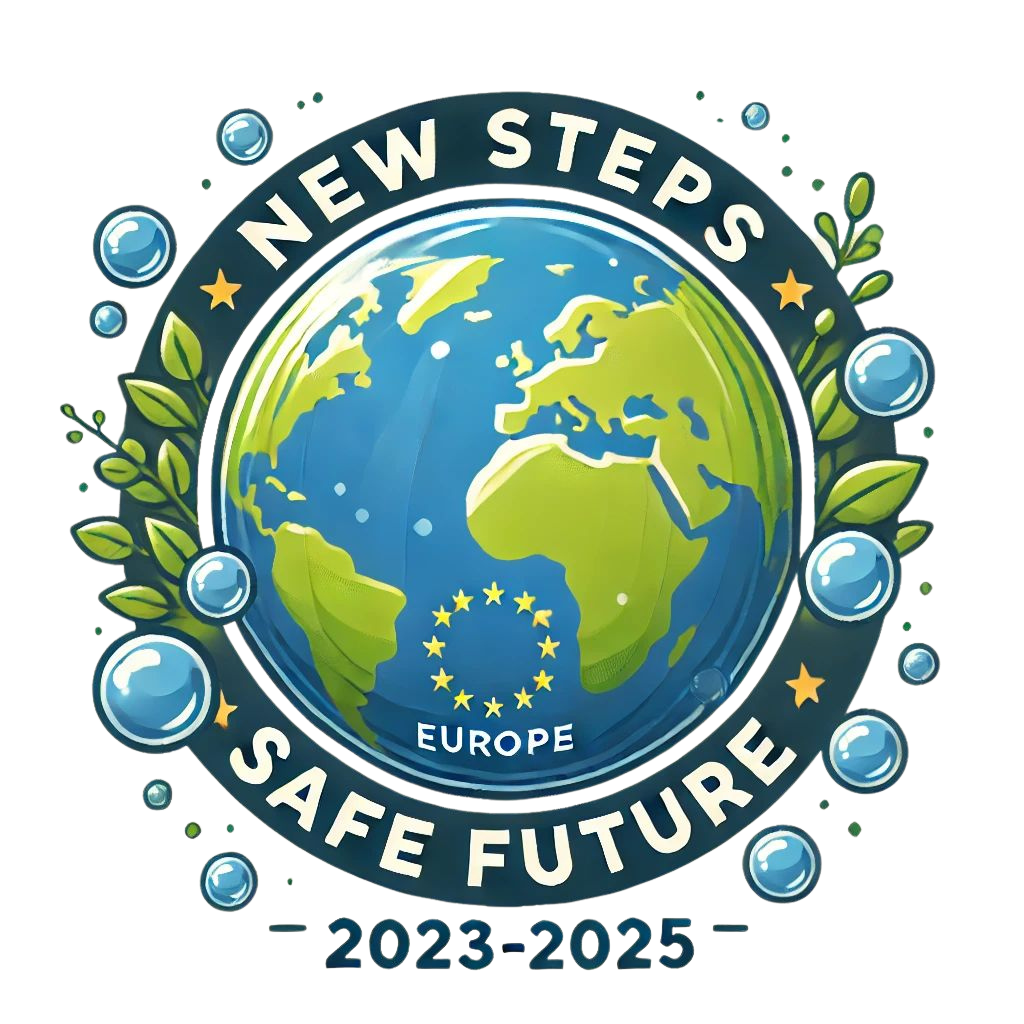
New Steps Safe Future
Project partners
- CIFP Hosteleria LHII (Spain)
- Multi-Act STD (Türkiye)
- Rödabergsskolan (Sweden)
New Steps Safe Future aims to contribute to reducing the carbon footprint to fight against climate change. We aim to support the development of teachers, school leaders, and teaching professions with activities planned according to the STEAM approach. We want to provide students with STEM skills that are scientifically based, based on inquiry and collaboration, and emphasize process evaluation.
At the end of the New Steps Safe Future project, a data guide, module guide, web portal, mobile application, and policy guide will be produced with activities aimed at the goals and objectives of the project. With these results, teachers, school leaders, teaching professionals, and students will gain STEM skills to fight against climate change and reduce the carbon footprint at European, national, and local levels. 168 teachers and 120 students will be involved in project activities, and 247 students in multiplier events.
The New Steps Safe Future project wants to carry out activities to reduce the carbon footprint of our students in order to fight against climate change. The project objectives, activities, and intellectual outputs are planned to fight against climate change and reduce carbon footprint, which are the priorities of the Erasmus+ program, and to increase interest in the environment, science, technology, engineering, and mathematics (STEM) skills and the STEAM approach, to support teachers, school leaders, and teaching professionals. We want to realize the project at the school level together with our partners by receiving funding support for the project. By creating our activities with the STEAM approach, we aim to provide teachers and students with scientific thinking-based, inquiry-based, problem-solving skills, collaborative, interdisciplinary learning, contextual learning, and process evaluation skills. These skills will equip teachers and students with competencies to fight against climate change.
The New Steps Safe Future project target groups are students aged 13-18, teachers, school leaders, and professions in education and training. Other target groups include municipal officials, government officials, university professors, young people, families, the public, digital/environmental entrepreneurs and employees, experts, and representatives in sectors such as agriculture, food, industry, transportation, and energy. Within our partnership structure, PT (University) consists of university employees, IE (SME) consists of professional experts, TR (NGO) consists of teachers and students between the ages of 14-20, HU (School) consists of students between the ages of 14-18, ES (School) consists of students between the ages of 14-18, and SE (School) consists of students between the ages of 13-17. Our aim is to leave an impact on climate change and education, as well as on relevant families, businesses, energy, transportation, industry, and agriculture sector representatives, start-ups, universities, municipalities, and youth centers at local, national, and European levels.
The goals of the New Steps Safe Future project are to carry out activities to fight against climate change and produce a data guide, module guide, web portal, mobile application, and policy guide. Within the scope of the partnership and beyond, dissemination activities at local, national, and European levels and activities to expand the impact of the project results will be carried out.
New Steps Safe Future Project Kickoff Meeting
The kickoff meeting took place on 2nd and 4th June 2024 in Budapest. The Project Start Date was 01/01/2024. The Project total Duration is 24 Months. The Project End Date is 31/12/2025.
SITES’ Role in the Project
- Expertise in Digital and Environmental Innovation: SITES brings its experience in sustainable innovation consulting, focusing on areas like energy, smart agriculture, and the environment.
- Leadership in Mobile Application Development: SITES is responsible for leading the development of the mobile application, one of the project's intellectual outputs, which aligns with their expertise in digital tools and smart solutions.
- Contribution to Climate Change Goals: By leveraging their background in innovative technologies to reduce greenhouse gas emissions, SITES supports the project's overall aim of fighting climate change and reducing the carbon footprint.
- Multidisciplinary Collaboration: SITES integrates their competencies in law, finance, engineering, and IT to provide comprehensive support for the project's objectives.
.
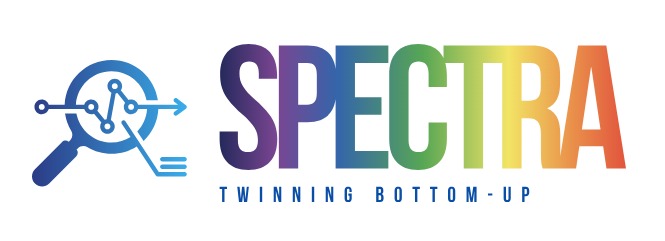
SPECTRA
The SPECTRA project aims to enhance the research and innovation (R&I) capabilities of AUTH in Greece, focusing on Water Quality and Food Safety, Quality & Traceability (WQ&FSAT) to address climate change-related challenges. By combining research, training, and collaboration, SPECTRA will boost scientific excellence, facilitate knowledge transfer, and improve networking both locally and internationally within the European Research Area (ERA). The project seeks to strengthen AUTH’s scientific standing, support the development of skilled researchers, and promote industry-academia partnerships. Expected outcomes include enhanced water quality and food safety, increased consumer confidence in Greek food products, support for monitoring and decision-making, and economic benefits for regional businesses through innovation, new product development, and job creation.
SITES Role
SITES plays a pivotal role in SPECTRA, bringing private-sector expertise in innovation consultancy, eco-innovation strategies, and sustainable development trends. Their contributions include high-level strategic market research, monitoring and evaluation, and strategic planning, ensuring that project outcomes are economically viable and widely applicable. Leading the economic component (WP6), SITES focuses on communicating and exploiting outputs from case studies, managing outreach, and promoting responsible research and innovation (RRI), open science practices, and gender inclusivity. This multifaceted role supports the effective dissemination, commercialization, and long-term impact of SPECTRA’s research innovations.

